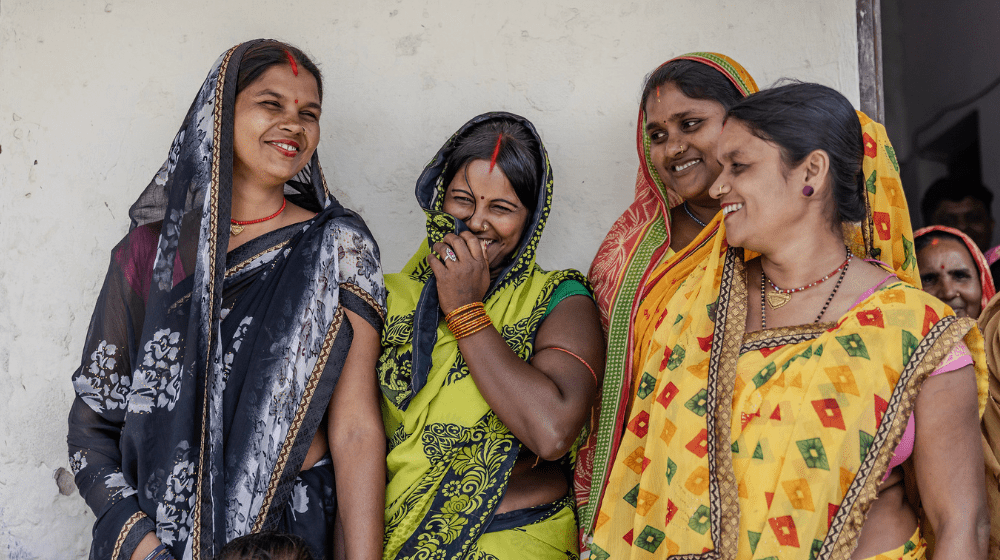Opinion-Editorial by UNFPA Regional Director for Asia & the Pacific, Pio Smith, as we mark the 16 days of activism for gender-based violence, from 25th November (International Day for the Elimination of Violence Against Women) to 10th December (Human Rights Day).
Gender-based violence remains an urgent human rights concern in the Asia Pacific region. This year, as we mark the 16 days of activism against gender-based violence, we call for stronger investments in ethically collected data to guide policies and actions across Asia and the Pacific in combating gender-based violence.
In this region, the United Nations Population Fund (UNFPA) operates across 36 countries, and data from 32 countries sheds light on the staggering reality: one in four women in Asia and the Pacific has encountered physical or sexual violence at the hands of an intimate partner during her lifetime. While the prevalence rates fluctuate among and within countries and across various groups of women, the reality remains – women are abused, raped, and sexually assaulted by their partners, in their homes and in their communities, and this must stop.
To end gender-based violence, we must delve deeper into the data. Where do the incidents occur? What are the drivers or contributing factors? What are the repercussions on the next generation? The data can help us stop the cycle of violence and address the issue at its root cause.
Investing in statistics and research isn't solely about amassing data; it's about refining our comprehension of that data. This includes enhancing our understanding, studying additional factors contributing to the problem, and discerning its beginning. When these contributing factors are understood, strategies and policies can be better informed towards eradicating gender-based violence and ensuring everyone's fundamental right to live without fear or discrimination.
Moreover, publicly available data also supports reporting on progress against commitments. In particular, Sustainable Development Goal (SDG) 5: to achieve gender equality and empower all women and girls. The region is not on track to achieve this goal by 2030. None of the 9 targets are expected to be met. Reliable data guides informed investments to get back on track to ending gender-based violence.
Since the SDG targets and indicators were adopted, technology-facilitated gender-based violence has cast a shadow over the lives of women and girls, posing an unprecedented threat to their safety, dignity, and fundamental human rights. Globally nearly 60 per cent of women have experienced some form of digital violence, on their phones or online. They are bombarded with toxic social media posts, hate speeches and violent content or have their images sexualised, distorted and shared without permission. Perpetrators of technology-facilitated gender-based violence disproportionately target members of marginalised communities, including LGBTIQA+ persons, persons with disabilities, adolescents, young women. Women politicians, activists and those in or aspiring to public roles are being specifically targeted, which is a detriment to society.
The swift expansion of digital spaces across the Asia-Pacific region presents valuable opportunities but also significant risks. There is an acute need for data and research to inform prevention and response to these emerging forms of violence and to engage with partners in the tech space to keep women and girls safe while they navigate the world of opportunities that online platforms provide.
The strong partnership between UNFPA and the Department of Foreign Affairs and Trade of the Government of Australia has supported the Asia-Pacific region to increase statistical capacity and the availability of data on the prevalence of gender-based violence. For those who are most at risk in our region today, we have data to inform investments in prevention and strengthen the much-needed evidence base on what works. Policy makers should understand and use the official data available and support further analysis and research where gaps exist. For statisticians and data producers, the responsibility is to make this existing data accessible and understandable so that all users can appreciate the scale of this challenge and see the evidence supporting successful interventions. Stakeholders and decision makers should be held accountable for what the data shows so that the global partnership is taking affirmative action to end this scourge.
Gender-based violence can be prevented - but urgent investments are needed to fulfill the promise of a life free of violence for women and girls, including those affected by humanitarian crises. This International Day for Elimination of Violence against Women, let us recommit to investing in data, research and evidence-based interventions for local solutions that will pave the way toward a future where every individual, regardless of gender, lives free from violence and discrimination, online and offline.
 |
Pio Smith
|


